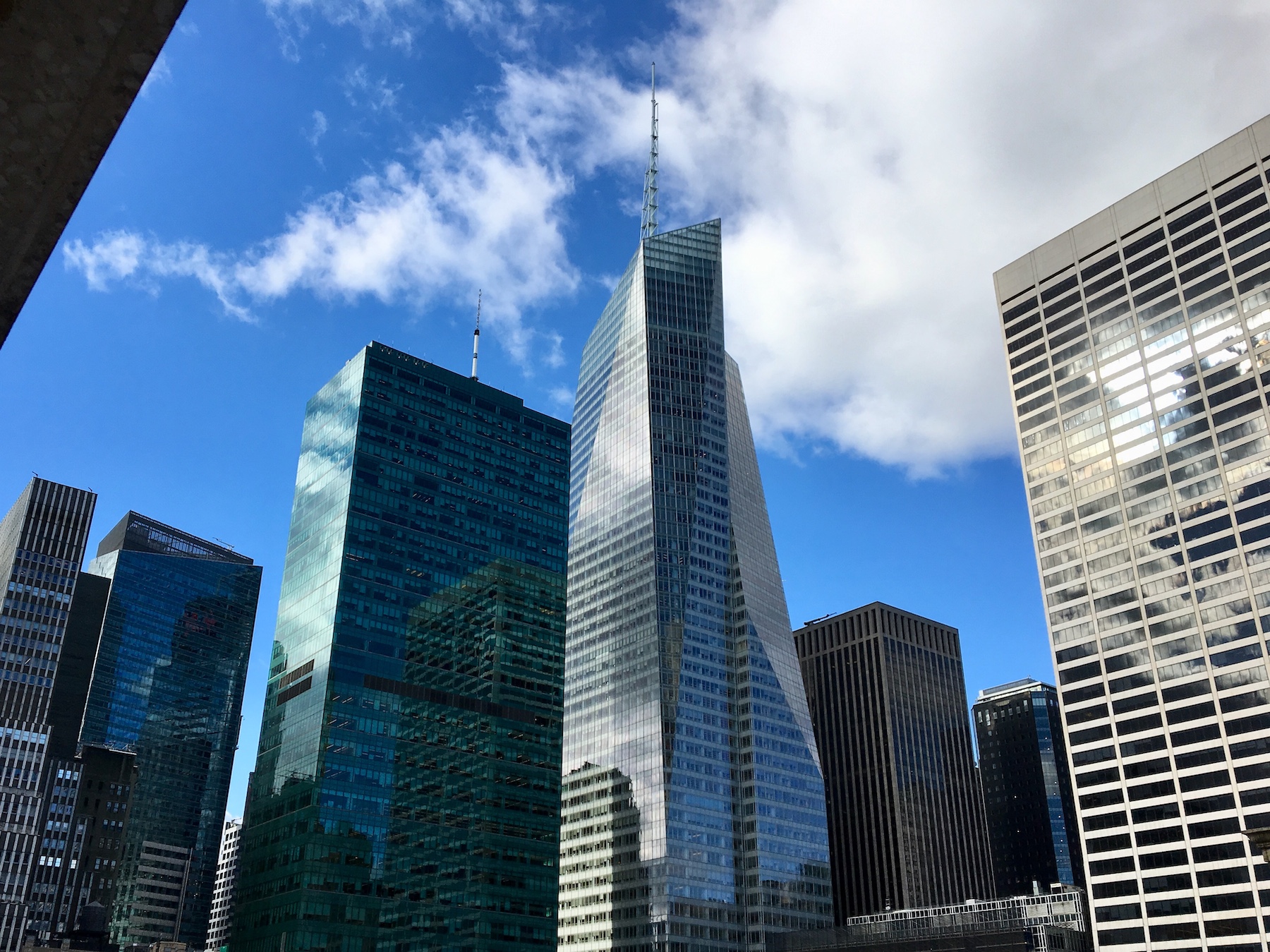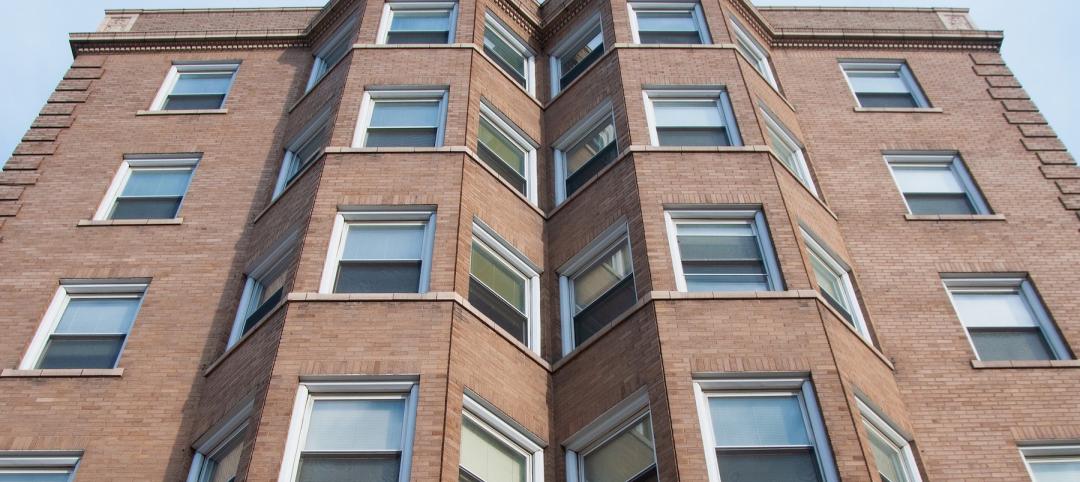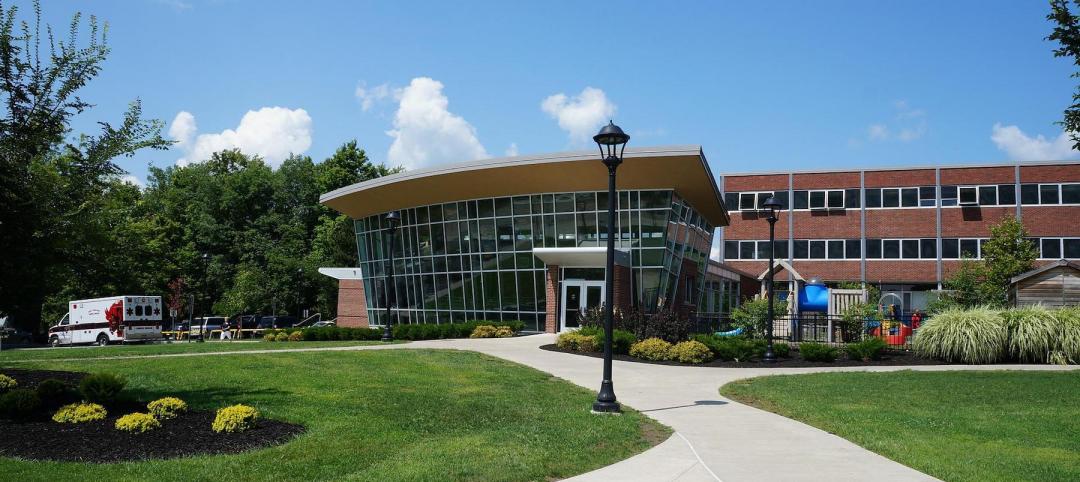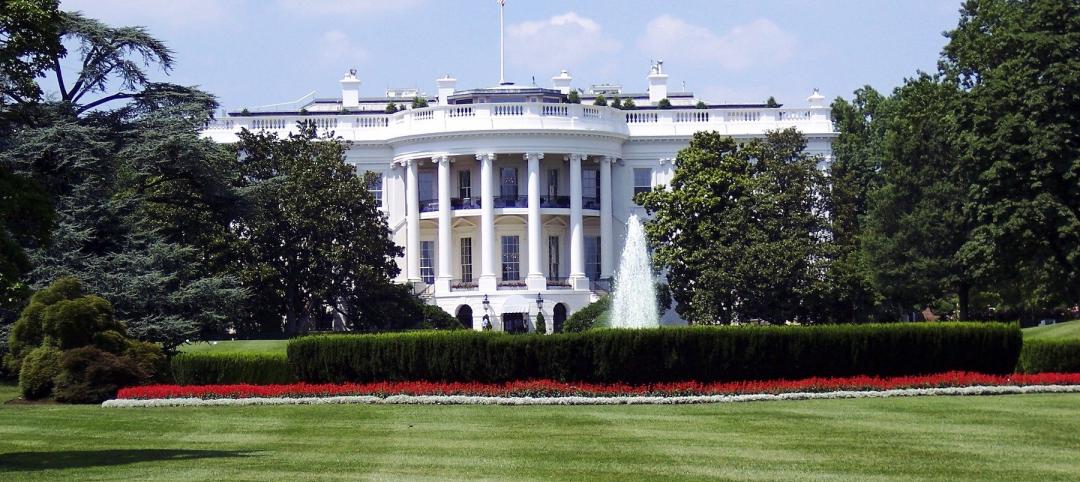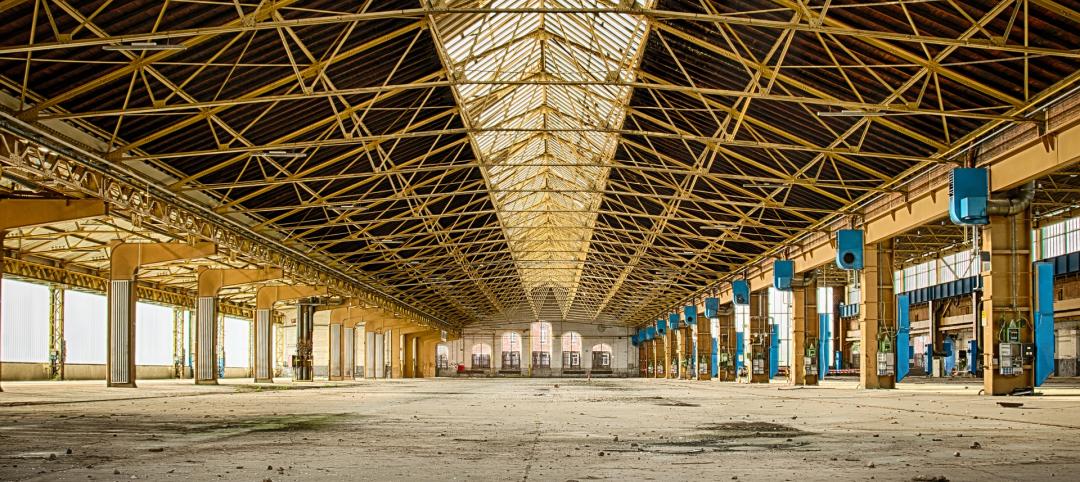One Bryant Park, also known as the Bank of America Tower, in Manhattan faces an estimated $2.4 million in annual fines when New York City’s York’s Local Law 97 goes into effect.
The potential hefty levy on this property is ironic given that it was certified LEED Platinum after it opened in 2010. An in-depth article at Bloomberg.com about this predicament illustrates the complexities owners face in addressing the law, which imposes carbon caps that are backed up by fines for non-compliance.
Passed in 2019, the law is a sweeping measure establishing emissions limits for almost 50,000 of the city’s largest buildings. The owners of an estimated 20% of these office buildings, hotels, and multifamily properties will likely face fines in 2024 when the law goes into effect. Many more buildings would face fines in 2030, when the caps will be lowered by 40%.
Part of the issue for the Bank of America Tower is a density of employees with heavy computer usage—at least on some floors—that use a lot of electricity. The owner says Local Law 97 is deeply flawed because it doesn’t distinguish between different densities and usages of properties and points out that the terms of the lease with the bank preclude him from limiting their power usage.
The Bank of America Tower had some impressive green features when it was built: a natural gas-fueled cogeneration plant for electricity that uses heat from the combustion process for additional power to operate HVAC systems, a cooling system that uses ice made overnight when power demand is lower, and a green roof. Today, when the ultimate goal is carbon neutrality, though, these features do not create the desired impact.
The details of the law are still being worked out, though, and that may bode well for the owner. There is support from some city officials to make allowances for buildings such as the Bank of America Tower that time their energy use.
Related Stories
Codes and Standards | Apr 13, 2022
LEED multifamily properties fetch higher rents and sales premiums
LEED-certified multifamily properties consistently receive higher rents than non-certified rental complexes, according to a Cushman & Wakefield study of two decades of data on Class A multifamily assets with 50 units or more.
Legislation | Apr 11, 2022
Dept. of Energy releases RFI for K-12 schools energy upgrade program
The U.S. Dept. of Energy (DOE) released a Request for Information (RFI) to help decide how best to spend $500 million from the recently passed federal infrastructure law for K-12 public school energy upgrades.
Codes and Standards | Apr 8, 2022
Dept. of Energy boosts energy efficiency standards for federal buildings
The Department of Energy’s recently released new energy efficiency standards for federal buildings.
Codes and Standards | Apr 7, 2022
Uptake of low-carbon materials expected to get a boost from federal building plan
Low-carbon materials will get a sizeable boost via purchases through a federal $3.4 billion building plan to modernize U.S. border crossings.
Codes and Standards | Apr 6, 2022
ABC and AFSP form partnership on mental health and suicide prevention in construction
Associated Builders and Contractors and the American Foundation for Suicide Prevention recently formed a partnership to address mental health and suicide prevention in the U.S. construction industry.
Codes and Standards | Apr 5, 2022
New York City chooses 20 firms for architectural design services on future public building projects
The New York City Department of Design and Construction (DDC) has contracted with 20 firms to provide architectural design services for the city’s future public buildings projects under the latest round of DDC’s Project Excellence Program.
Codes and Standards | Apr 4, 2022
Construction of industrial space continues robust growth
Construction and development of new industrial space in the U.S. remains robust, with all signs pointing to another big year in this market segment
Legislation | Apr 1, 2022
American Bird Conservancy doubles capacity to test bird-friendly glass
American Bird Conservancy (ABC), working with Washington College in Maryland, says it has doubled its capacity to test and rate glass and other materials for their ability to deter bird collisions.
Legislation | Mar 31, 2022
Bill in Washington State would fund seismic retrofits in schools
A bill recently passed by the Washington State Senate could unleash hundreds of millions of dollars for school seismic retrofits over several years.
Legislation | Mar 30, 2022
Wisconsin legislators expand the scope of interior design in the state
Legislators in Wisconsin passed a bill, quickly signed into law by the governor, that codifies holistic interior design legislation and significantly expands the scope of interior design in the state.


